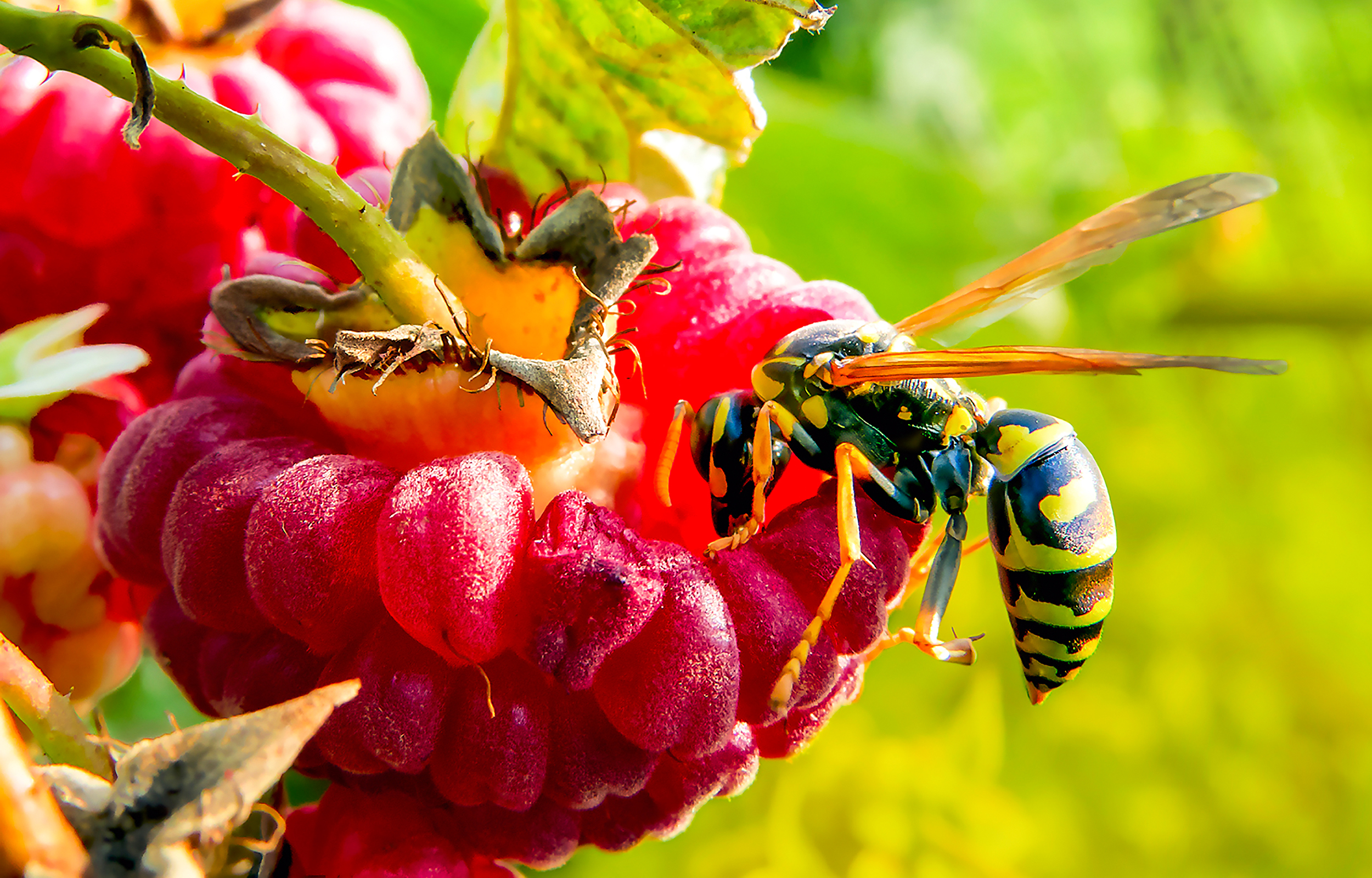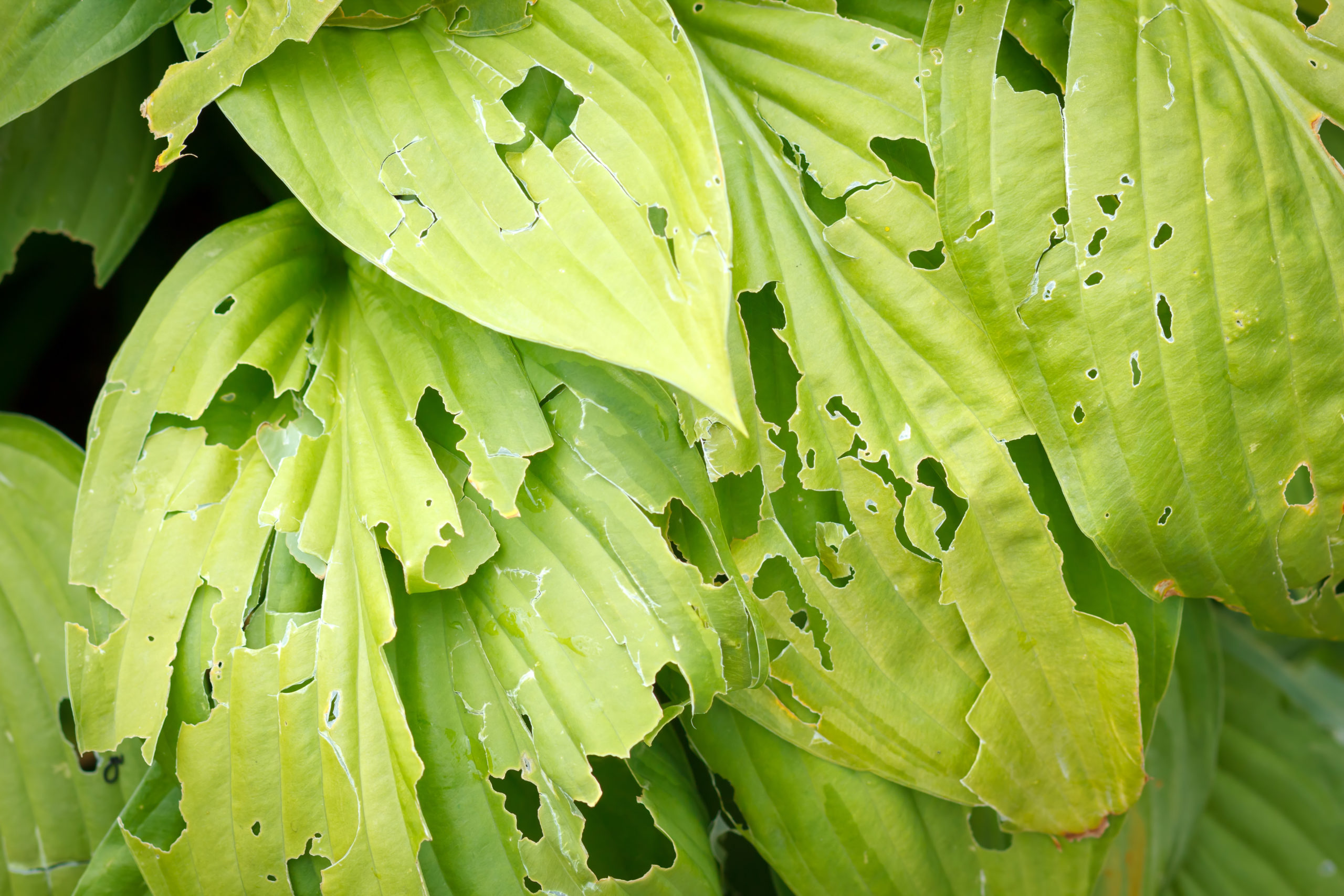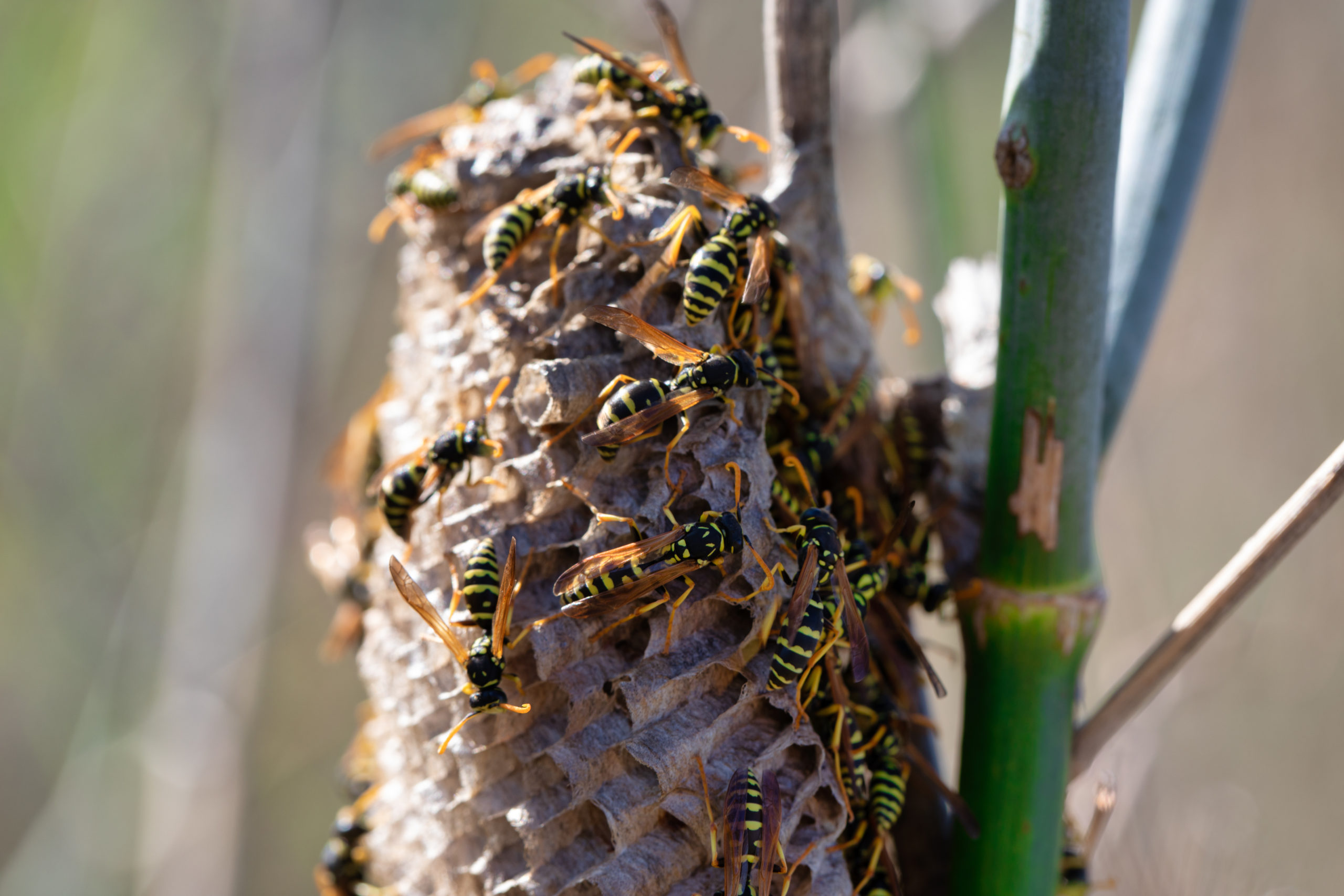Using Wasps as Natural Pest Control in Gardens
Using Wasps as Natural Pest Control in Gardens
Predatory Wasps
Paper wasps are big fans of sugary treats. They seek out fruits and the nectar of flowers for their sweet fix, and when we’re around they love to mooch off our sodas, fruit juice, and other treats. But, while wasps certainly enjoy these vegetarian sugary treats, they also have a strong predatory nature.

Potentially Beneficial Pests
Luckily for crops, the predatory nature of wasps means that they attack and consume a variety of agricultural pests. Some of these plant destroying pests include moths, beetles, flies, plant lice, caterpillars etc., and in areas where crops are ravaged by these insects, wasps are very welcome. During the 1980’s a horde of cassava mealybugs were mutilating crops in Africa until wasps swooped in and managed to save roughly 2 billion dollars in agricultural profits. In fact, their ability to protect crops so effectively have made them a point of interest for farmers as a way to replace harmful pesticides on crops. Similarly, gardeners are considering the possible benefits of having wasps around as a natural, biological pest control.
But, while wasps can clearly be very helpful, does it mean it’s worth it to let them make their nests in your yard?

Weighing the Pros and Cons
Even for avid gardeners, the risks don’t outweigh the benefits in this situation. Wasps are notorious for being aggressive, predatory, and very territorial. Due to this territorial nature, they are extremely unfond of people getting close to their nests and tend to attack if they feel you’ve gotten within a certain range or if they think you may be a threat, meaning a nest in your yard puts you at significant risk of being attacked. Furthermore, unlike honeybees, who lose their barbed stingers and die after stinging, the stingers of wasps are smooth, allowing them to sting their victims repeatedly. Along with their stingers, wasps have very powerful mandibles that they use to bite people when attacking, adding another significant amount of pain to the attacks of these pests.
In addition to the pain of these attacks, they can also be very dangerous or even life threatening for those with an allergy to wasp venom. Even people without allergies can experience a medical emergency if stung enough times. As such, their potentially helpful actions in gardens are far outweighed by the dangers they pose.

Staying Safe
At Green Pest Services, your health and safety are our top priorities. We have years of experience, training, and in-depth knowledge about wasps and how to treat them safely so that you and your family are protected from stings. If you are concerned about wasps in your yard, give us a call today!

Citations
Camp, D. (no date) Beneficials in the Garden – Paper Wasp, Texas Master Gardener – Extension Horticulture at Texas A&M University. Galveston County Master Gardener Association, Inc. . Available at: https://aggie-horticulture.tamu.edu/galveston/beneficials/beneficial-01_paper_wasp.htm (Accessed: August 3, 2021).
Frank, S., Bambara, S. and Baker, J. (2019) Paper wasps for Caterpillar management in the Landscape, NC State Extension Publications. North Carolina State University. Available at: https://content.ces.ncsu.edu/using-paper-wasps-for-caterpillar-management-in-the-landscape-1 (Accessed: August 3, 2021).
Landolt, P. and Antonelli, A. Yellowjackets and Paper Wasps, Washington State University.
WSU Puyallup Research and Extension Center. Available at: https://s3.wp.wsu.edu/uploads/sites/1384/2016/07/Yellojackets-and-Paper-Wasps.pdf (Accessed: May 2020).
Vogt, C. (2018) Types of Wasps That Are Very Aggressive, Sciencing. Available at: https://sciencing.com/types-of-wasps-12365156.html (Accessed: September 2020).
Wu, K. (2018) Five Real Life Wasp Superpowers Not in Ant-Man and the Wasp, Smithsonian Magazine. The Smithsonian Institution. Available at: https://www.smithsonianmag.com/science-nature/why-you-should-let-wasp-be-your-hero-today-180969521/ (Accessed: July 2020).

